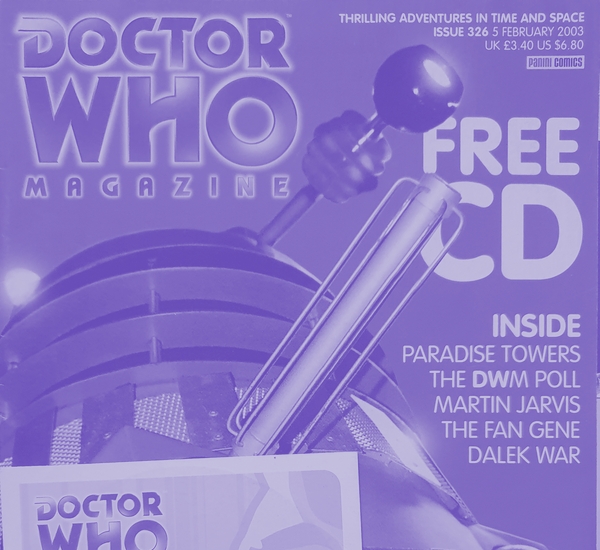Heritage is a dead planet. It has the air of one of those northern towns gutted by the closure of the local pit. The Seventh Doctor, arriving to tidy some loose ends, is also feeling depressed. It’s a feeling not helped by the discovery that an old friend has mysteriously vanished, a fact the less-than-friendly locals seem eager to conceal.
There’s something of Joss Whedon’s new series, Firefly, in the book’s fusion of science fiction and the Old West: cyborg barkeepers, horses and space shuttles. It’s a surprisingly potent combination, even for those (including this reviewer) who are baffled by the popularity of Westerns. This isn’t a Colony in Space-style tale of cowboys and indians. Instead, Smith captures a sense of loneliness, of being on the frontier of the unknown. This contributes to the siege mentality of the colonists, and the archetypal Doctor Who set-up of an isolated settlement in peril. The twist being that the threat is that outsiders will discover the horrific secret that the colonists have sworn to conceal.
The secret, when it is finally revealed, is shockingly effective. Although this is not the first time a former companion of the Doctor has been bumped off (in fact, it’s becoming rather trendy), the murder of Melanie Bush appals because it is so small-scale. No grand drama, no great death scene. Just a squalid murder on a backwater planet. We don’t even witness the crime. Even the motive is dispiritingly petty - Professor Wakeling, a futuristic Frankenstein determined to create a viable race of human clones, doesn’t want Melanie to report his experiments to the authorities.
Fittingly enough for a Past Doctor Book, Heritage is about history. The shadow of the past hangs heavy over the planet and its guilty population, collectively traumatised by what they did a long time ago. Smith cleverly reinforces his theme with snippets from memoirs and history books that introduce the chapters, and which frame the action of the novel while simultaneously allowing us a glimpse of the future.
The past is also catching up with the regulars. Ace is still under the influence of her cheetah side. She is ‘as graceful as a cat’, and has a tendency to snarl and hiss when provoked: she’s a tiger when her dander’s up. And Smith presents us with a Doctor haunted by his past, lost in his own melancholic introspection and only gradually deciding that interfering is what he does best. It’s here that the book’s major fault lies. The Doctor is too dour for too long. His unhealthy self-obsession leads to some laboured and unconvincing comparisons between his actions and those of Wakeling.
Heritage also forms something of a bridge between the BBC’s Seventh Doctor books and Virgin’s New Adventures, heavily referencing both Mike Tucker’s Storm Harvest, through the character of Bernard, the gun-slinging dolphin, and the Adjudicators who featured so heavily in the NAs. It looks back to the spoon-playing ferret-fancying Doctor of Season Twenty-Four, and forward to the introspective arch-manipulator of the Virgin novels. At other times, it seems to be foreshadowing DWM’s Ground Zero saga, with allusions to Ace’s fate. There is a conversation between the Doctor and cybernetically-enhanced barman, Cole, near the beginning of the novel that apes the scene with John, the cafe owner, in Remembrance of the Daleks. The book’s ending is also reminiscent of Remembrance, with the Doctor and Ace leaving the colonists to mourn their dead.
However, Heritage is far from being a derivative mish-mash of references. The seemingly languid beginning is deceptive: this is a tight book that uses its gentle introduction to slowly develop the central mystery and some rounded and sympathetic characters. The first half of the novel leads up to the revelation of Mel’s murder. The second half deals with the fall-out from this revelation, with increasingly powerful confrontations between the Doctor and Wakeling, and a suitably bittersweet conclusion.
With strong characterisation and a well-structured storyline, Heritage is a superior Past Doctor novel. What it lacks in monsters and big explosions it makes up for with real feeling: Melanie’s death is genuinely affecting, both for the characters, the readers, and, one suspects, the author.
Matt Michael
